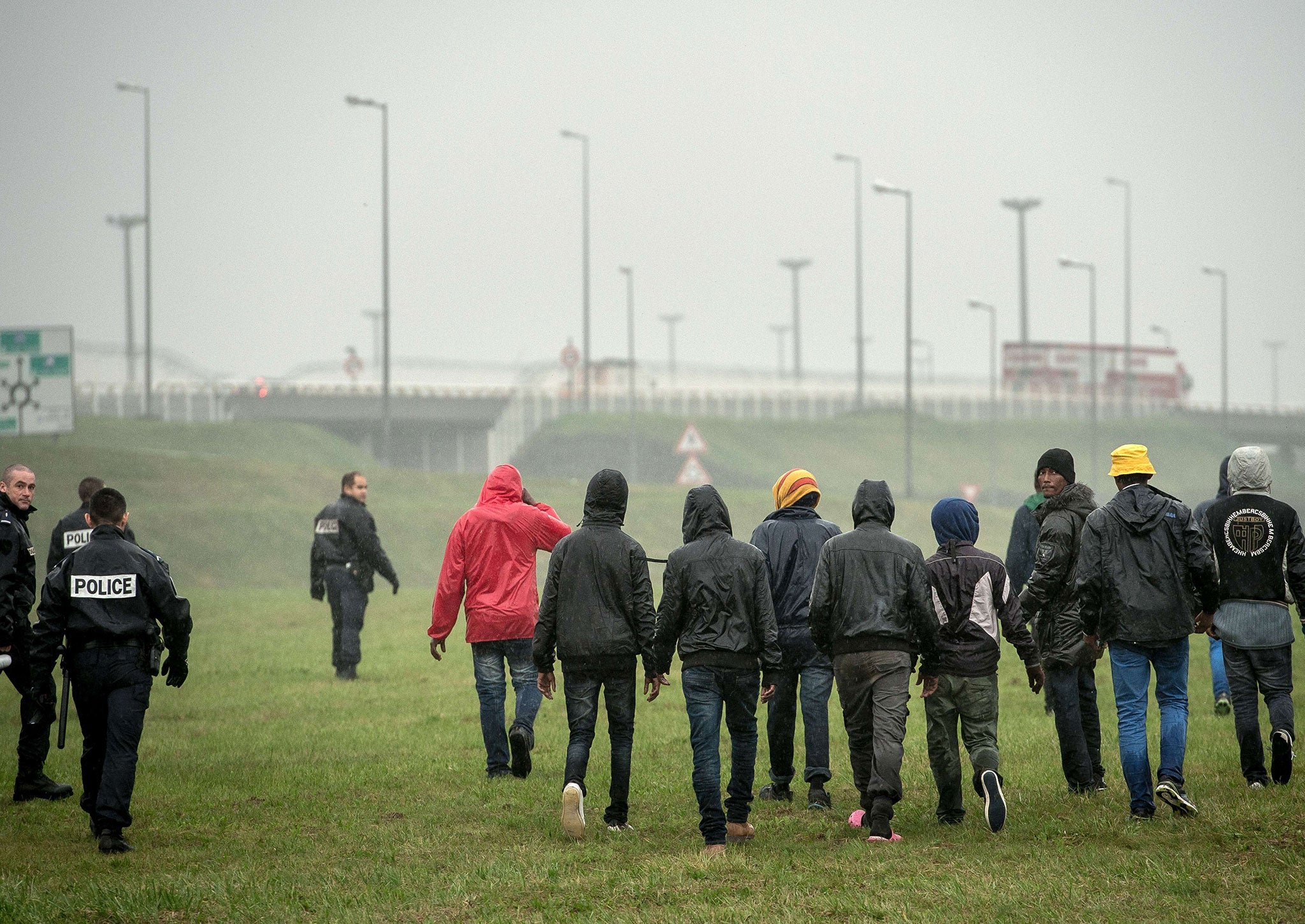Tighter security in Calais won’t solve the problem
The real solution is to tackle the problem at source, a far more daunting challenge

One is France’s fourth-busiest port and the other is the capital of a small African nation scarred by poverty and repression.
Yet it is impossible to separate the fates of Calais and Asmara, cities divided by more than 3,200 miles, as the misery of everyday life in Eritrea is in stark evidence across the English Channel.
Eritreans – so desperate to reach Britain that they have journeyed across the Sahara, the Mediterranean and Europe – make up about half of the migrants leaving in squalor in Calais. They are joined by other Africans as well as Syrians and Afghans fleeing from the violence in their homelands.
Hundreds of migrants linger every day near the freight terminal in the hope that they can smuggle themselves on to a lorry bound for the UK, with their frustrations occasionally boiling over into clashes with police.
Some find themselves in the grip of Albanian gangs which run lucrative people-smuggling operations across Europe with many migrants seduced by illusory promises of riches awaiting them in Britain. Dealing with the crisis at Calais has become one of the biggest problems confronting the Home Secretary, Theresa May, and James Brokenshire, her immigration minister. Labour points to the chaos as evidence of the Coalition’s failure to police Britain’s frontiers and promises to recruit more border staff.
The migrants’ living conditions, which have been compared with the world’s most wretched refugee camps, have also developed into a headache for the French government, which is under fire domestically for allowing a humanitarian catastrophe to develop.
Britain’s response has been to pledge £12m over three years to tighten security at the freight terminal.
Much of the money is being spent on moving the 9ft-high fences which guarded the world’s leaders at the recent Nato summit in Newport to Calais.
The port will also be reconfigured to improve the flow of traffic and reduce the number of stationary vehicles targeted by migrants.
However, if the measures work and the terminal is turned into a fortress which repels all migrants, the problem would be displaced rather than solved.
Migrants head for Calais because of the frequency of ferry sailings, but they could easily gather in other French or Belgian ports perceived as a softer touch.
There have been warnings they could try to jump into the cars of tourists returning to Dover and even run into the Channel tunnel.
They could resort to other, and potentially riskier, ways of getting to Britain: in August a man died when he was among 35 Afghans crammed into a sealed container shipped from Zeebrugge to Tilbury.
The real solution, politicians and transport chiefs alike agree, is to tackle the problem at source, a far more daunting challenge than erecting security fences or hiring extra border officers.
Mr Brokenshire travels to Rome next week to help launch a fresh EU attempt to find ways of easing the migratory pressures from Eritrea and neighbouring Somalia and Ethiopia as well as tackling the trafficking gangs in Libya and Egypt.
He says: “Calais is just one very visible sign of a much wider problem. It often has its roots in the Horn of Africa, where people first make the decision to risk their lives on the perilous journey to Europe.”
It will be a painfully difficult and slow process, though, to identify methods to bring stability to a region which has been in turmoil for decades – and thus reduce ambitious young citizens’ desire to leave.
More than ever we live in an inter-connected, shrinking world and no amounts of fearsome barriers at Calais will alter that.

Join our commenting forum
Join thought-provoking conversations, follow other Independent readers and see their replies